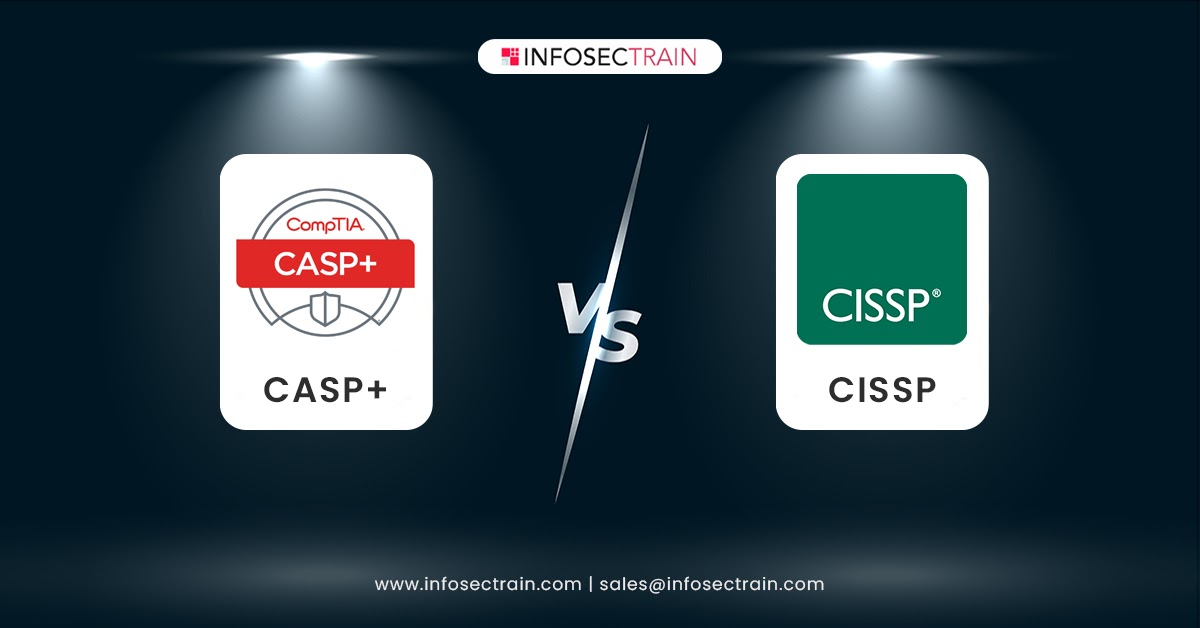Understanding The Differences Between CASP+ And CySA+
In today's rapidly evolving cyber landscape, professionals in the field of cybersecurity are faced with a multitude of certifications that can enhance their careers and validate their skills. Among these, CASP+ (CompTIA Advanced Security Practitioner) and CySA+ (CompTIA Cybersecurity Analyst) stand out as two of the most recognized and sought-after certifications. Both are designed to equip cybersecurity experts with the knowledge and skills necessary to safeguard organizations against emerging threats, but they cater to different roles and levels of expertise. Understanding the differences between CASP+ and CySA+ is crucial for individuals looking to advance in their cybersecurity careers.
As organizations continue to prioritize security, the demand for skilled professionals who can analyze and respond to threats, as well as implement advanced security measures, is increasing. This article will delve into the key differences between CASP+ and CySA+, helping you determine which certification best aligns with your career goals. We'll explore the focus, target audience, and skill sets required for each certification, allowing you to make an informed decision about your professional development.
Whether you're just starting your career in cybersecurity or looking to elevate your existing skill set, understanding the nuances of CASP+ vs CySA+ is essential. By comparing these two certifications, you’ll gain insights into their respective benefits and the specific competencies they validate, ultimately setting you on the path to success in the cybersecurity field.
What is CASP+?
CASP+ is an advanced certification offered by CompTIA that is geared toward experienced security professionals. It is designed for those who have a deep understanding of enterprise security and a strong grasp of risk management, security architecture, and incident response.
Who Should Pursue CASP+?
The CASP+ certification is ideal for individuals who are looking to take on leadership roles in cybersecurity. This includes positions such as security architects, security engineers, and senior security consultants. Candidates should have at least ten years of experience in IT administration, with a minimum of five years in a technical security role.
What Topics Does CASP+ Cover?
- Risk management and governance
- Enterprise security architecture
- Security operations and incident response
- Advanced security solutions and technologies
What is CySA+?
CySA+ is a certification specifically focused on the behavioral analytics aspect of cybersecurity. It is tailored for individuals tasked with detecting and responding to threats in an organization, emphasizing the importance of threat intelligence and security analytics.
Who Should Pursue CySA+?
CySA+ is suited for cybersecurity professionals who monitor and respond to security incidents. Roles such as security analysts, threat hunters, and vulnerability analysts align well with the skills validated by this certification. Candidates should ideally have a foundational knowledge of security and experience in IT.
What Topics Does CySA+ Cover?
- Threat and vulnerability management
- Security architecture and tool sets
- Security operations and monitoring
- Incident response and recovery
CASP+ vs CySA+: What are the Key Differences?
When comparing CASP+ and CySA+, several distinctions emerge that can guide professionals in their certification choices. Below are some of the main differences:
- Focus: CASP+ emphasizes advanced security practices and strategies, while CySA+ is centered on detecting and responding to incidents.
- Target Audience: CASP+ is aimed at seasoned professionals, whereas CySA+ is more accessible for those with foundational knowledge.
- Job Roles: CASP+ leads to roles in security leadership, while CySA+ targets operational roles like analysts.
- Content Depth: CASP+ requires a deeper understanding of security architecture, while CySA+ focuses on analytics and threat detection.
Which Certification is Right for You?
Deciding between CASP+ and CySA+ ultimately depends on your career aspirations and current skill set. If you are looking to take on a leadership role and possess significant experience in cybersecurity, CASP+ may be the right fit. On the other hand, if you are interested in a more hands-on role focused on detecting and responding to threats, CySA+ could be the better option.
What Are the Benefits of Each Certification?
Both CASP+ and CySA+ offer unique advantages:
- CASP+: Validates advanced security skills, enhances career prospects, and demonstrates leadership capabilities.
- CySA+: Confirms expertise in threat detection and response, increases job marketability, and prepares candidates for operational roles.
Conclusion: CASP+ vs CySA+ - Making Your Choice
In conclusion, both CASP+ and CySA+ are valuable certifications that cater to different aspects of cybersecurity. By understanding the differences between CASP+ vs CySA+, you can make an informed decision that aligns with your career goals. Whether you choose to pursue the advanced capabilities of CASP+ or the operational focus of CySA+, both certifications will enhance your expertise and open doors to new opportunities in the ever-evolving field of cybersecurity.
Article Recommendations
- Anti Cheat Police Department
- Michael C Hall
- Line Dancing In Naples Fl
- Evergreen Laundromat
- Hannibal Mo
- Montana State University Football
- Sponsors The Finals
- Csun Registration
- Anant Real Name
- Banking Associate


